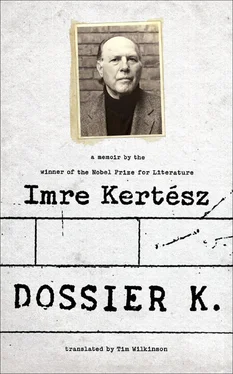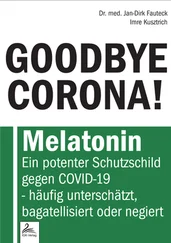I can see you are leafing through The Union Jack . Carry on, do.
“… but for a forint or two pressed into his palm, [he] would let any student or student type into the auditorium, testily ordering them to stand by the wall and then, as soon as the conductor appeared at the stage door leading to the podium, would direct them in a harsh voice to any unoccupied free seats. It would be fruitless for me to muse now over why, how, and on what impulse I came to like music … it is a fact, therefore, that even then, as little more than a child, I would have been unable to tolerate that life, my life, without music.” Is that true?
It is. Later on, when I found myself in situations that made all reality, even my own existence, highly questionable in my own eyes, it was enough for me to softly whistle, let’s say, the second subject of the first movement of the Jupiter Symphony for life to be restored to me.
You said that was “later on.” When exactly?
When by mistake I set off as a newspaper reporter.
Let’s stay for the moment with Mr. Kondor’s approval of the young music-lover. We are in the interlude between two dictatorships and you happen to be enjoying the brief interval, or to be posh: intermission .
Not bad.
You’re involved in school, in the Communist Party, you go to the Music Academy in the evenings, then sit around in dives by night …
Put like that, it sounds great, and on the whole so it was. Except it leaves out the most important bit, the feeling that most of all dominated my life: uneasiness.
So things weren’t entirely all right, after all?
Who said they were? The air rarefied around me; a string of friends, classmates at school, left the country. I felt myself becoming a growing burden to my mother. I hadn’t the slightest idea about what I should do by way of setting about my so-called future. For the time being, I still had to take the school-leaving certificate; I used to get up during the night, shut myself into the bathroom, and by the light of the bulb write a universal drama that bore a striking resemblance to the Divine Comedy; in my play a man strays from the right path just as in the latter … in a nutshell I think that’s what it was about: just as in real life at the time, I lost my way. I had no role models to go by; at grammar school there slowly emerged a sort of elite who spoke in what, to me, was a foreign language. Those boys read Galsworthy and The Thibaut Family . With their supercilious intellects, they kept abreast with the mysteries of integral and differential calculus, of which I understood nothing. I acquired the hefty book by Martin du Gard and was bitterly disappointed to have to admit that I found it monumentally boring. What took my fancy, by contrast, were American thrillers, lighthearted Hungarian fiction, like the tales of Jenő Rejtő, Dezső Kosztolányi’s “Kornél Esti” short stories, the novellas of Sándor Hunyadi, and Remarque, but if I brought Arch of Triumph into a conversation, which I may have read as many as five times, it was to encounter pitying smiles. All in all, I was set to fail the more difficult subjects like math; in the eyes of the elite whom I esteemed so highly I counted as an uncultured clod; sometimes I would find my mother’s gaze looking me up and down uneasily and with impatient expectation. I was an exile, yet full of vivid and groundless hopes all the same.
Of what kind?
I don’t know — nameless ones. It was as if I had heard the encouragement of a distant promise.
Would that have been the Weltvertrauen, the trust in the world, that you mentioned earlier as sustaining you in the concentration camp?
An intriguing question. At all events I lived without any plans, taking each day as it came, but I don’t think it is worth dwelling too long on that critical period in my life.
I’m sorry, but crises are always interesting. You yourself just mentioned that you had no role models to go by. Didn’t you miss your father, for instance?
The only answer I can give is the brutal one: no, I didn’t.
But don’t you think that your association with the Communist Party attests to the lack of some kind of father figure?
No, I don’t. Right around then I had no connection at all with them. I would pay my Party dues every month; that was the extent of it. In fact, I was assailed by the most severe doubts about Marxism on the basis of a doltishly cocksure book by George Bernard Shaw (I don’t recollect its title). I have to start from the fact that among the books belonging to my mother — or Laci Seres, to be precise — I came across a slim, handsome volume with the title of The Symposium , written by this ancient Greek author called Plato. I took it to heart for literally days on end. After that came GBS, who solved all of Marxism’s problems with a flick of his fly-swatter, simply knocked them on the head, every single one with the same angry swipe. Can one discard everything on which man has been cogitating for five thousand years just like that, I questioned with my eighteen-year-old intellect? That seemed exceedingly unlikely. And then the books on Party tactics by Engels and by Lenin in particular— One Step Forward, Two Steps Back (The Crisis in Our Party) , or is it the other way round? — proved mind-numbingly tedious. The Symposium was highly refined poetry by comparison.
In other words, you did everything in your power to saw off the branch on which you were perched .
Not everything; that only ensued later on. For the time being all I did was make my life more uncomfortable, but that is at least something.
A step ahead?
If I had known which way was backward or forward!
You said just before that you became a newspaper reporter by mistake .
Everything I did was by mistake; all in all, I lived in complete error. Anyway, journalism at least looked interesting.
How did it enter your head to become a journalist?
Look, as I’ve already said, during the nights I was writing this blank-verse play. Admittedly, I abandoned it fairly quickly, but somehow I had been touched by the process of writing itself. It was around then that Zoltán Jékely’s novel based loosely on the life of the poet Endre Ady— The Black Sail may have been its title 12—came into my hands. In this a poet seriously — and quite literally, one might say — seeks death in love, and suddenly there emerges from the perfumed murkiness of a bordello a girl, the bewitching carrier of poisoned kisses, Hetaera Esmeralda , as Leverkühn, the main protagonist of a later piece of reading matter, calls the fate insidiously lurking in his blood. 13As you may be able to tell, I was an incurable romantic whom the world of existing socialism had at one and the same time clutched to its breast. What chance would I have had to get to know myself?
All the same, journalism is rather far removed from romanticism, isn’t it?
If you are familiar with it and that’s what you do, that’s no doubt true, but for me it was the way of life that attracted me, and here too it was through a book: Ernő Szép’s novel Adam’s Apple . A journalist crops up in that who plays the role of the raissoneur; wise and resigned, he knows what he knows, he sits in coffee-houses, watching the world bustle by in front of the window table, and every now and again he writes a newspaper article — well, that was exactly how I wanted to live.
I’m not sure your interpretation of the novel is totally accurate …
It doesn’t matter: that’s how I saw it. Writing as a way of life for me was linked with fatal love, on the one hand, and total idleness, on the other.
Читать дальше












